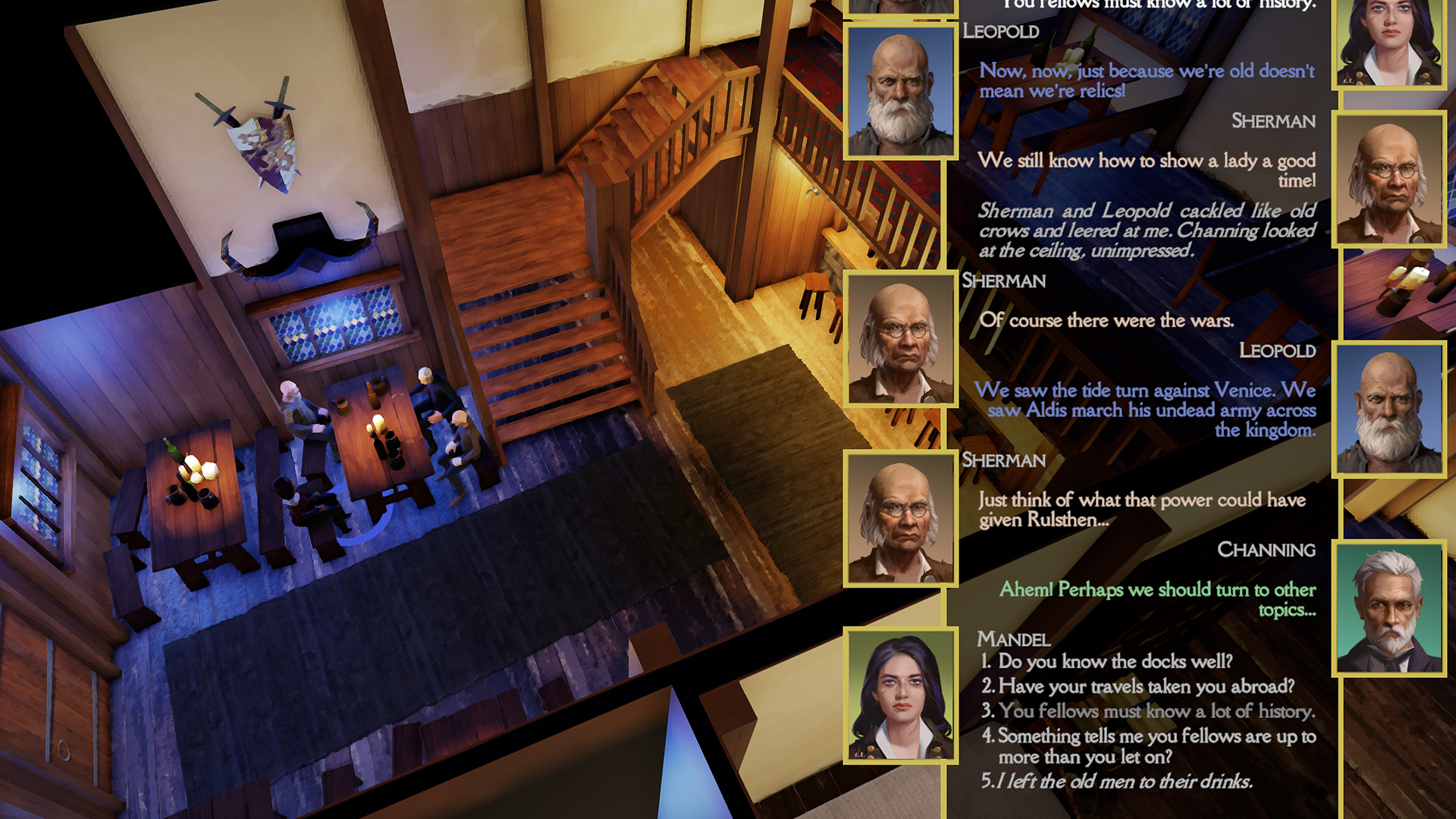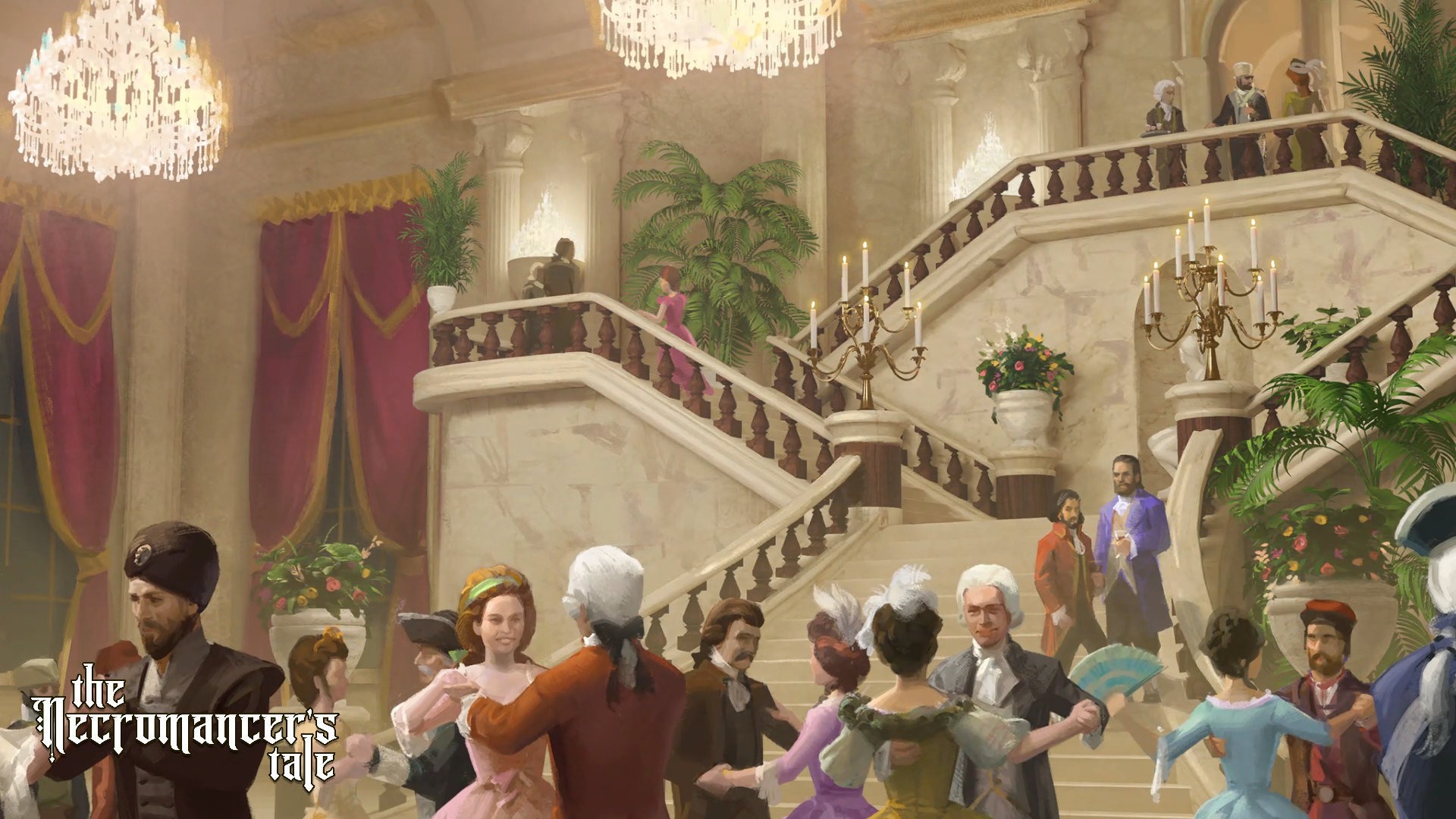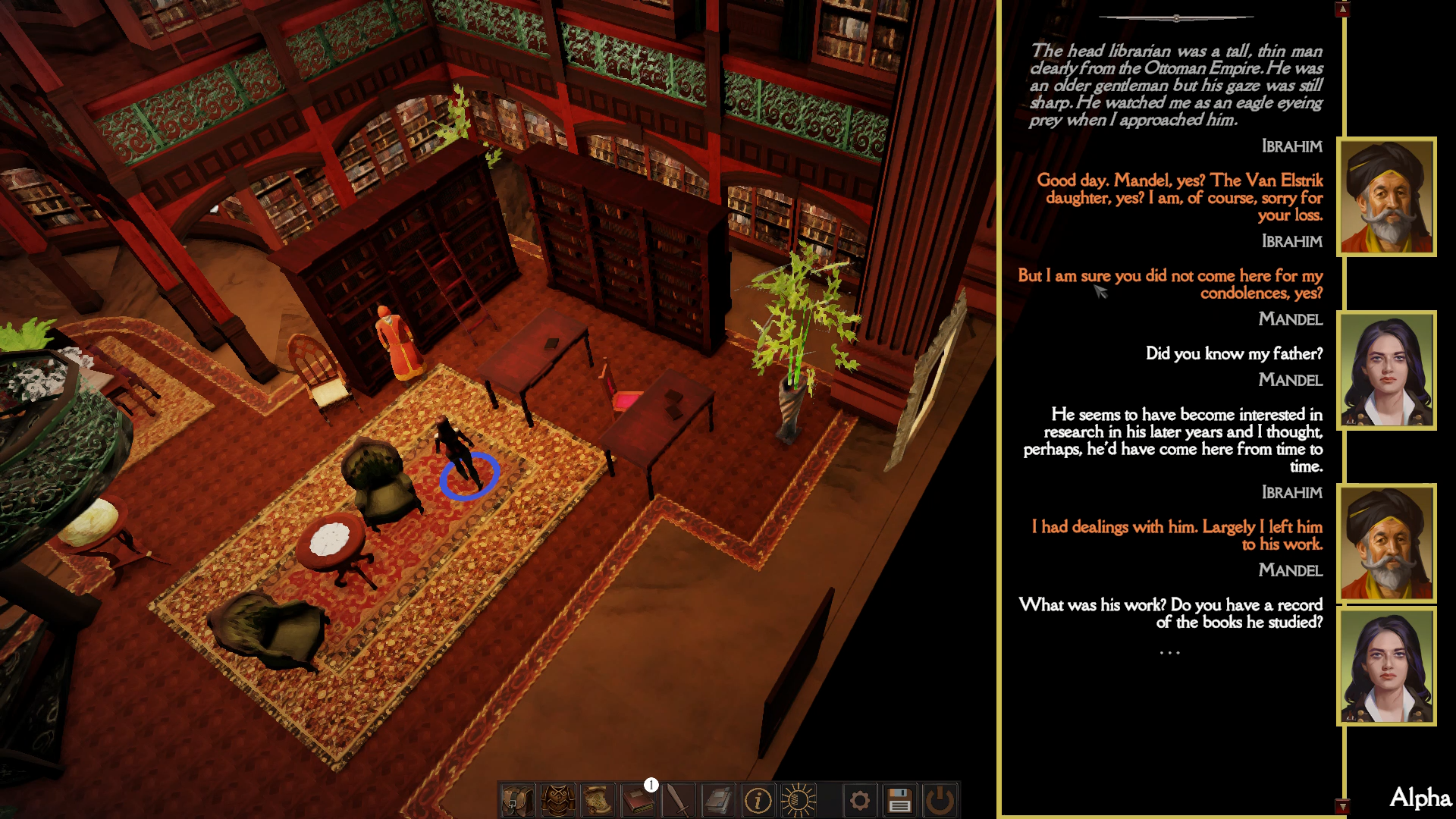The Necromancer's Tale has a strong focus on the social aspects of RPG gameplay. The player secretly operates as a black magic practitioner in a medieval city (in 1733) where to be caught would mean certain execution. A lot of play revolves around the social aspects of conversation, coercion, blackmail - and even seduction - whatever it takes for the player to progress their cause. We wanted a game system which would involve decision-making during conversation as well as during more action-oriented play. In short, a system where choices matter - where the player wouldn't feel that they could just mindlessly click through every conversation option without getting punished. Our system involves two related concepts: Trust and Tension.
Try the Pre-release Demo on Steam: The Necromancer's Tale

Trust
Trust represents the attitude of the NPC townsfolk to the player. Through the use of ‘Trust Groups' we simulate the behind-the-scenes gossip through which one NPC's changing attitudes to the player propagates around their social network. For example, if the player acts cruelly to an NPC, then the Trust value will reduce for each of the Trust Groups that that NPC belongs to.
The Trust Groups are:
1 Workers
2 Educated
3 Military
4 Gentry
5 Orphans
6 Outsiders
The player's uncle Jervase (militaristic baron of the city), for example, belongs to the Military and Gentry trust groups. The overall trust of the city to the player is calculated from the average of each of the first four trust groups (since no-one really listens to orphans or outsiders). If this overall city trust value drops too low, the player will be tried in court, punished, and perhaps hanged. In the meantime, conversation options are affected by Trust values.
Transgressions
As well as conversation, the game also involves physical activity, of course. The player interacts with objects in the world, moves around, fights (on occasion), and sometimes drags dead bodies back to their home laboratory. Whenever the player is doing something illegal, line-of-sight arcs are displayed for all nearby NPCs. If the player falls within the arc of an NPC, then Trust is affected by the witnessing of the transgression (for the appropriate Trust Groups).

Tension
The second concept in our social system is Tension. This is a number which represents the overall atmosphere of fear in the city. Actions taken by the player which they were not actually witnessed doing will raise Tension but not directly affect Trust. So the player should be careful not to leave dead bodies lying around or bump off too many NPCs - even though they may get away with it at the time.
As Tension rises, the city becomes more heavily patrolled by guards, which in turn makes Transgressions harder to get away with. A high tension value also means that people are more suspicious, harder to deal with in conversation, and more likely to jump to conclusions if the player ends up in court.
Try the Pre-release Demo on Steam: The Necromancer's Tale




